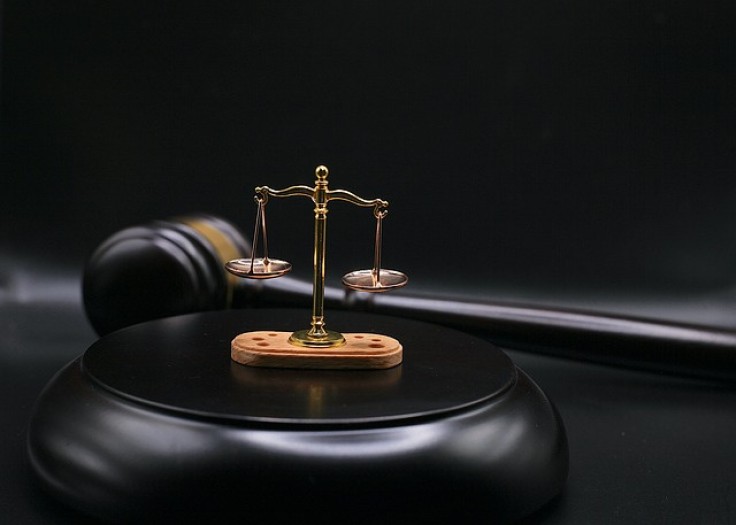
Jeffrey Kaliel has more than 10 years of experience as a class action lawyer. He enjoys helping his clients get the compensation that they deserve. Today, he's here to discuss how you can start a class action lawsuit in 2023.
What is a Class Action Suit?
A class action lawsuit allows parties that believe they have been wronged or harmed in some way to come together, and file a lawsuit as a group. The harm may be financial or physical.
These suits can be filed in state or federal court. They are civil suits, which allow the injured parties to receive monetary compensation.
The named plaintiff is responsible for the legal proceedings. The other parties who have been harmed are the unnamed parties. They can choose to participate in the lawsuit, or they can opt-out, which allows them to take individual action.
Requirements for Filing a Class Action Suit
While the rules for class actions in different states vary, federal lawsuits must meet specific requirements. These are explained under Rule 23.
The named plaintiffs must have legal standing to file their claim. They must also share the same legal claim with the unnamed plaintiffs. The named plaintiff must be representative of the unnamed plaintiffs.
It must also be clear who the unnamed plaintiffs are. For example, they may all be consumers of a certain product, or suffered harm from the same company.
A minimum of 40 people are typically required for a suit to qualify as a class action suit. These suits can have 1,000s or even millions of unnamed plaintiffs.
Step 1. Finding a Class Action Attorney
Jeffrey Kaliel explains that the first step in filing a class action lawsuit is to meet with a class action attorney. An attorney can help you ensure that you qualify for a class action suit, and help you through the steps of filing a claim.
Your attorney has the resources and knowledge to determine if the lawsuit is legitimate. They may perform research, or speak to others harmed in the same way the client was.
Step 2. Filing a Claim with the Court
A named plaintiff can begin a class action lawsuit. This is called a class action complaint. Claims must be filed with a court that has jurisdiction. The claim must also explain the facts of the case, including the legal grounds for filing, Jeff Kaliel explains.
For example, the Philip Morris lawsuit involved claims that the tobacco maker knew cigarettes were harmful, and even destroyed evidence to hide this fact.
3. Certifying the Class Action
If the court determines that you have legal grounds for a case and claims jurisdiction, they will certify the class action. Once the claim is certified, the process continues. If the claim isn't certified, the class action suit can't proceed.
4. Discovery
Once the claim is certified, it moves into the discovery phase. During this phase, the attorneys will search for evidence that the claims made by the class action is true.
This can include getting statements from those harmed by the company, as well as records from the company named in the class action.
Step 5. Resolution Through Trial or Settlement
95% of lawsuits settle before the trial even begins. This means work for attorneys, the company, and the named plaintiffs. It also allows the suit to be resolved faster than it would if it went to trial.
Settlements also allow the company and the plaintiffs to avoid the unpredictability of a court trial and ruling.
If a settlement can't be reached, the class action suit will go to trial. Some class action suits are ruled on by a jury, while others are ruled on by the judge.
Common Types of Class Action Suit
Understanding the different types of class action lawsuits can help you determine if you have a class action suit.
Securities Class Action
One type of class action lawsuit is a securities class action. Investors who encounter financial harm due to the misconduct of a company or board members are eligible for this type.
Employment Class Action Suits
Employment Class Action suits are filed by employees against the company they work or worked for. Allegations can involve discrimination or employment law violations, including wages and hours required.
Consumer Class Action
Consumer class action suits are the most well known. Consumers can bring this type of lawsuit if the company engages in false advertising, defective products, consumer fraud, or antitrust violations, according to Jeff Kaliel.
Product liability lawsuits are a type of consumer class action. These suits occur when the product is faulty, or cause harm.
In many cases, the wrongdoing by the company causes physical injury. However, damage to consumers' property or financial harm can also occur.
Medical and Pharmaceutical Class Action
Medical or pharmaceutical class actions are another type. These can occur due to faulty medical devices, or over-the-counter or prescription drugs. For example, a class action suit was filed against Purdue, due to claims the company made about prescription opioids.
Environmental Class Action Suits
Environmental class action suits occur when a group of people is harmed due to exposure to an environmental hazard. These suits include oil spills and water sources contaminated by improper waste disposal from companies.
Consumer Protection
Consumer protection lawsuits can be filed when a company violates a state or federal consumer protection law. These laws can be related to telemarketing, communication services fees, credit records, truth in lending, and debt collection.
Jeff Kaliel
Jeffrey Kaliel obtained his law degree from Yale Law School in 2005. He continued his education at Amherst College, where he graduated Summa Cum Laude in 2000 with a degree in Political Science. He then spent a year studying philosophy at Cambridge, England, before beginning his law career.
He's spent the last 10 years representing class action lawsuits. He was named "Washington D.C. Rising Stars Super Lawyers 2015".
He focuses on cases that represent the public good. His cases include class action suits against predatory lenders.









